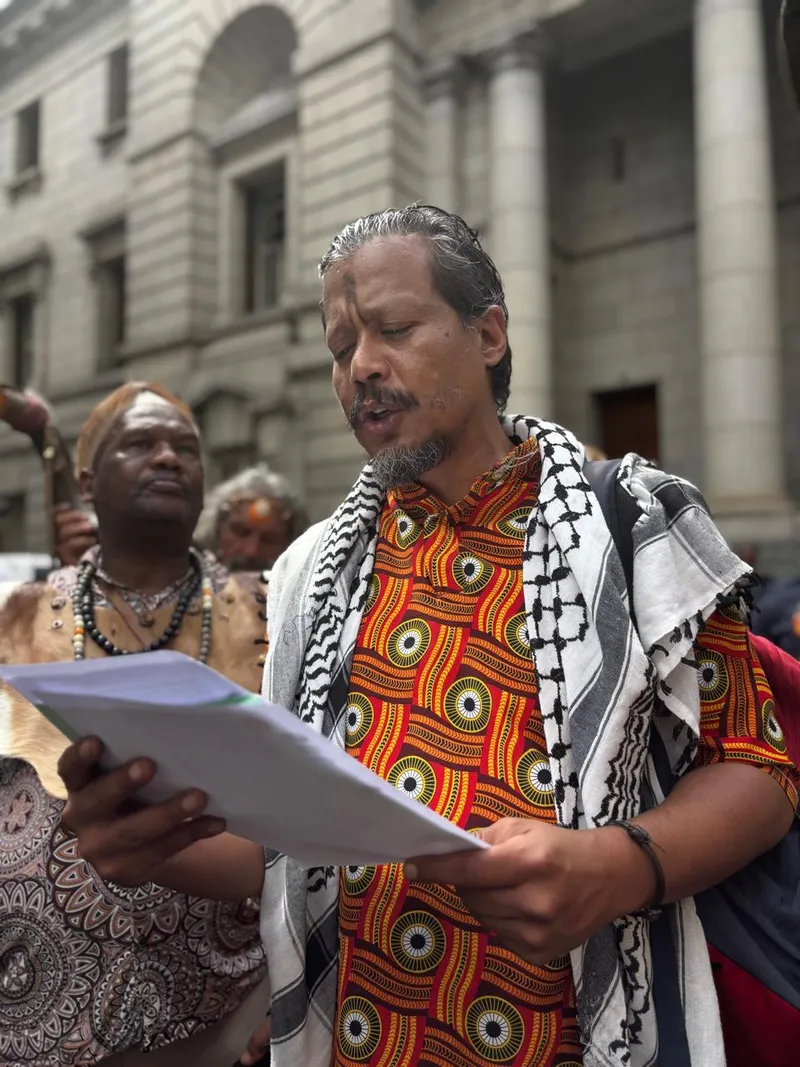Cape Town firefighters tackle suspected arson blaze near Devil's Peak
Firefighters in Cape Town battle a suspected arson blaze in Table Mountain National Park, raising alarms about a growing trend of deliberate fires in the region. ...
Jonathan Roxmouth Returns with 'Key Change' – A musical journey at Theatre on the Bay
Join South Africa’s beloved stage star, Jonathan Roxmouth, as he brings his acclaimed show, 'Key Change - My Favourite Pianists', back to Theatre On The Bay from ...
South Africa's indoor tug-of-war team celebrated in Cape Town ahead of World Championships
South African indoor tug-of-war athletes received a warm welcome at a capping ceremony in Cape Town, marking the sport's return to international competition after ...
Join the cultural immersion at the Zeitz MOCAA gala in Cape Town
Experience a transformative cultural journey at the Zeitz MOCAA's 2026 Gala Collateral Programme this February, featuring renowned figures, immersive art experiences, ...
Read of the week: The Predicament
Discover William Boyd's 'The Predicament', the thrilling second instalment of the Gabriel Dax trilogy, where Cold War tensions meet personal dilemmas in a captivating ...
Experience Rachmaninov with Leo de María at Cape Town's Autumn Symphonies
Join the Cape Town Philharmonic Orchestra for an enchanting Autumn Symphonies concert series every Thursday in April at Cape Town City Hall. Experience the brilliance ...
Open Book Festival Youth Festival: Inspiring young readers from March 16 to 23
Join the Open Book Festival's Youth Festival from March 16 to 23, where children and teens can immerse themselves in a week of free literary events, including storytime ...
Community reactions to the Bo-Kaap Market launch
The launch of the new Bo-Kaap Market on February 14 sparked mixed emotions among locals, with some eager to support vendors while others expressed concerns about ...
Indemnity form scrapped at Table Mountain National Park for a smoother visitor experience
Visitors to Table Mountain National Park can now enjoy a hassle-free experience as the controversial indemnity form is scrapped, paving the way for a new digital ...
Ashley Scott and Bradley Smith set to dazzle in Pretty Woman: The Musical
Don't miss the chance to see Ashley Scott and Bradley Smith in the highly anticipated Pretty Woman: The Musical, debuting at the Artscape Theatre next month!
Join the fight: Help Childline Western Cape raise R1.5 million at their urgent fundraising concert
Join Childline Western Cape's mission to raise R1.5 million for vulnerable children at the Healing through the Arts concert on March 6. Enjoy inspiring performances ...
Catch Conrad Koch and Chester Missing's final show in Cape Town
Join multi-award-winning comedian Conrad Koch and his puppet Chester Missing for their final show, Puppet Power, at Theatre on the Bay in Camps Bay until February ...
Plan ahead: Green Point licensing centre closing early due to SONA traffic disruptions
Residents of Cape Town should prepare for significant traffic disruptions today as the Gallows Hill licensing centre closes early at 1pm to ease congestion ahead ...
Discover the new digital verification and indemnity processes at Table Mountain National Park
Table Mountain National Park is set to enhance visitor experience with new digital verification and indemnity processes, streamlining access and ensuring accurate ...
